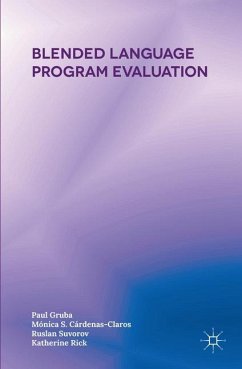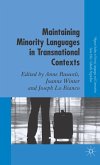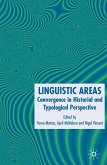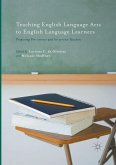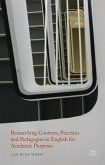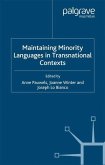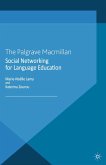Advocating an argument-based approach, Blended Language Program Evaluation presents a framework for planning, conducting, and appraising evaluation of blended language learning across three institutional levels, and demonstrates its utility and application in four case studies carried out in diverse international contexts.
Review 1 - Freda Mishan, University of Limerick
General
1) In your own words, please provide a short outline of the project
This book makes a case for the systematic evaluation of Blended Language programmes. It offers the theory and practice of Blended learning programme evaluation and illustrates this in practice via three international case studies.
Proposal
2) Does this proposal offer a useful and/or original contribution to the field? Is it addressing any new/emerging areas?
The area covered in the proposed book is cutting edge in the field of TESOL, in that Blended Learning (BL) is emerging as a pedagogical paradigm. The area of blended language learning is still fairly underpublished, with only a few edited volumes available, Gruba's work with Hinkelman (2012) being the only other book that I am aware of at present that it is not an edited volume.
The book critically engages with the use of emerging technologies in language learning, an aspect which remains underrepresented despite over four decades of CALL research. It takes a critical look at the use of blended programmes at third level which, while a growing practice, is currently missing a strong empirically- based justification.
The proposed book would therefore clearly help fill this gap in the market for blended language learning literature. With its focus on blended language programme evaluation, the book might be seen as fitting a fairly niche area.
From the outline it would seem that what the book offers in terms of evaluation methodology and mechanisms should have a broader application however e.g.to the evaluation of so-called CALL in general, and perhaps of language learning programmes in general.
3) Does it adequately engage with recent scholarship? Does it take existing scholarship forward?
The authors build on some of the key concepts identified in Gruba and Hinkelman (2012), such as their 4 key considerations for BL, purpose, appropriateness, multimodality and sustainability. The book's (implicit or explicit) starting point is the evolving normalisation of technology, this fits in with current research and publication in CALL/TESOL that uses this status quo as a launching point.
There are other previous publications in BL that use the case-study format (Rubio and Thoms 2014, Tomlinson and Whittaker 2013): Gruba and Cárdenas Claros' proposed book is complement to, a more developed version of these, with more comprehensive case-studies and, of course, a specific focus on structured, detailed evaluation of them.
4) What are the strengths and weaknesses of the proposal? You may wish to consider structure, organisation, coherence and presentation of material; scope, coverage and breadth of appeal or degree of specialisation; whether there are any obvious omissions; timeliness and likely shelf-life of the research; what proportion of the work, if any, will require substantial re-working? Are any suggested improvements fundamental to the project's success or discretionary matters which might be addressed after the project has been accepted?
Some perceived strengths:
The book offers a means of critically engaging with the use of emerging technologies in language learning which remains a crucial area despite over four decades of CALL research.
The chapters on evaluation methodology chapters 4,5 6,7,8, will provide a valuable general outline of some common methodologies and instruments in language learning research.
This is supported by substantial appendices giving tools, resources and evaluation rubrics. This will make the book a valuable evaluation methodology resource for researchers and postgraduate students.
Potential weaknesses:
Degree of specialisation:
While the area of Blended Learning is of fairly broad interest in the TESOL community, its focus on evaluation of BL programmes puts the book into a more niche area; this would be my main reservation.
Any case study has the advantage of providing the reader wit
General
1) In your own words, please provide a short outline of the project
This book makes a case for the systematic evaluation of Blended Language programmes. It offers the theory and practice of Blended learning programme evaluation and illustrates this in practice via three international case studies.
Proposal
2) Does this proposal offer a useful and/or original contribution to the field? Is it addressing any new/emerging areas?
The area covered in the proposed book is cutting edge in the field of TESOL, in that Blended Learning (BL) is emerging as a pedagogical paradigm. The area of blended language learning is still fairly underpublished, with only a few edited volumes available, Gruba's work with Hinkelman (2012) being the only other book that I am aware of at present that it is not an edited volume.
The book critically engages with the use of emerging technologies in language learning, an aspect which remains underrepresented despite over four decades of CALL research. It takes a critical look at the use of blended programmes at third level which, while a growing practice, is currently missing a strong empirically- based justification.
The proposed book would therefore clearly help fill this gap in the market for blended language learning literature. With its focus on blended language programme evaluation, the book might be seen as fitting a fairly niche area.
From the outline it would seem that what the book offers in terms of evaluation methodology and mechanisms should have a broader application however e.g.to the evaluation of so-called CALL in general, and perhaps of language learning programmes in general.
3) Does it adequately engage with recent scholarship? Does it take existing scholarship forward?
The authors build on some of the key concepts identified in Gruba and Hinkelman (2012), such as their 4 key considerations for BL, purpose, appropriateness, multimodality and sustainability. The book's (implicit or explicit) starting point is the evolving normalisation of technology, this fits in with current research and publication in CALL/TESOL that uses this status quo as a launching point.
There are other previous publications in BL that use the case-study format (Rubio and Thoms 2014, Tomlinson and Whittaker 2013): Gruba and Cárdenas Claros' proposed book is complement to, a more developed version of these, with more comprehensive case-studies and, of course, a specific focus on structured, detailed evaluation of them.
4) What are the strengths and weaknesses of the proposal? You may wish to consider structure, organisation, coherence and presentation of material; scope, coverage and breadth of appeal or degree of specialisation; whether there are any obvious omissions; timeliness and likely shelf-life of the research; what proportion of the work, if any, will require substantial re-working? Are any suggested improvements fundamental to the project's success or discretionary matters which might be addressed after the project has been accepted?
Some perceived strengths:
The book offers a means of critically engaging with the use of emerging technologies in language learning which remains a crucial area despite over four decades of CALL research.
The chapters on evaluation methodology chapters 4,5 6,7,8, will provide a valuable general outline of some common methodologies and instruments in language learning research.
This is supported by substantial appendices giving tools, resources and evaluation rubrics. This will make the book a valuable evaluation methodology resource for researchers and postgraduate students.
Potential weaknesses:
Degree of specialisation:
While the area of Blended Learning is of fairly broad interest in the TESOL community, its focus on evaluation of BL programmes puts the book into a more niche area; this would be my main reservation.
Any case study has the advantage of providing the reader wit

